Continuing with what we covered the lesson (Lesson.7 Japanese kanji), let`s study about the Japanese kanji (目、口、耳、手、足) one by one.
No.35 What`s the meaning of 目,and how to use and pronounce it.
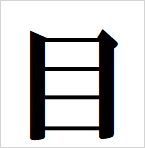
Reading
on-yomi
[MOKU]
[モク]
kun-yomi
[MÉ / MANAKO]
[め / *まなこ]
* まなこ(MANAKO) is irregular kanji reading.
Meaning
Eye. Watch something. Point. The heading, caption.
The word using “目”
| word | meaning | pronunciation |
| 目 | eye | MÉ |
| 目だま (目玉) | eye ball | MÉDAMA |
| 目ぜん (目前) | imminent | MOKUZÉN |
| ちゅう目 (注目) | attention | CHUUMOKU |
| か目 (科目) | subject | KAMOKU |
| しゅ目 (種目) | event | SHUMOKU |
| 目じ (目次) | contents | MOKUJI |
| 目的 (目的) | purpose | MOKUTÉKI |
| 目ひょう (目標) | goal | MOKUHYOU |
No.36 What`s the meaning of 口, and how to use and pronounce it.
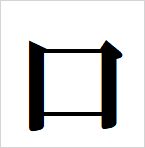
Reading
on-yomi
[KOU/ KU]
[コウ / ク]
kun-yomi
[KUCHI]
[くち]
Meaning
Mouth. Say something. The start of something. Kind of something. The number of people or house.
The word using “口”
| word | meaning | pronunciation |
| 口 | mouth | KUCHI |
| へい口 (閉口) | close mouth | HÉIKOU |
| 口ご (口語) | colloquial | KOUGO |
| 口じつ (口実) | excuse | KOUJITU |
| わる口 (悪口) | trash talk | WARUGUCHI |
| 人口 | population | JINKOU |
| か口 (河口) | estuary | KAKOU |
| 口ちょう (口調) | tone | KUCHOU |
| 口かず (口数) | * | KUCHIKAZU |
| まど口 (窓口) | counter | MADOGUCHI |
*口かず (口数) KUCHIKAZU means word count of speaking.
The condition of talkative is called
口かず (口数) が 多い (many)。
KUCHIKAZU GA OOI.
The condition of reticence is called
口かず (口数) が少ない (few)
KUCHIKAZU GA SUKUNAI.
No.37 What`s the meaning of 耳, and how to use and pronounce it.
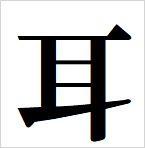
Reading
on-yomi
[JI]
[ジ]
kun-yomi
[MIMI]
[みみ]
Meaning
Ear.
The word using “耳”
| word | meaning | pronunciation |
| 耳びか (耳鼻科) | ENT | JIBIKA |
| そら耳 (空耳) | misheard | SORAMIMI |
| 耳もと (耳元) | close to ear | MIMIMOTO |
No.38 What`s the meaning of 手, and how to use and pronounce it.
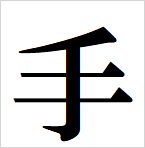
Reading
on-yomi
[SHU/ZU]
[シュ/ズ]
kun-yomi
[TÉ/TA]
[て / た]
Meaning
Hand. To do using hands. Have a role of something.
The word using “手”
| word | meaning | pronunciation |
| 手 | hand/hands | TÉ |
| あく手 (握手) | shake hand | AKUSHU |
| にゅう手 (入手) | get | NYUUSHU |
| 手じゅつ (手術) | ope | SHUJYUTU |
| 手だん (手段) | way | SHUDAN |
| か手 (歌手) | singer | KASHU |
| せん手 (選手) | player | SÉNSHU |
| 上手 | good | JYOUZU |
No.39 What`s the meaning of 足, and how to use and pronounce it.
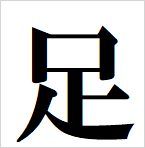
Reading
on-yomi
[SOKU]
[ソク]
kun-yomi
[ASHI /TA]
[あし / た]
Meaning
Leg/foot. Walk. Enough condition. Add to something.
The word using “足”
| word | meaning | pronunciation |
| 足 | leg / foot | ASHI |
| 足あと (足跡) | footprint | ASHIATO |
| 手足 | hand & foot | TÉASHI |
| ぶ足 (不足) | lack | BUSOKU |
| 足りる | enough | TARIRU |
| 足す | add | TASU |
| 足しざん (足し算) | addition | TASHIZAN |
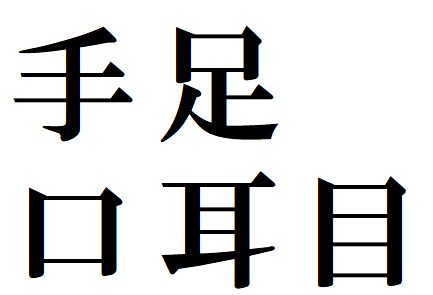
COMMENTS